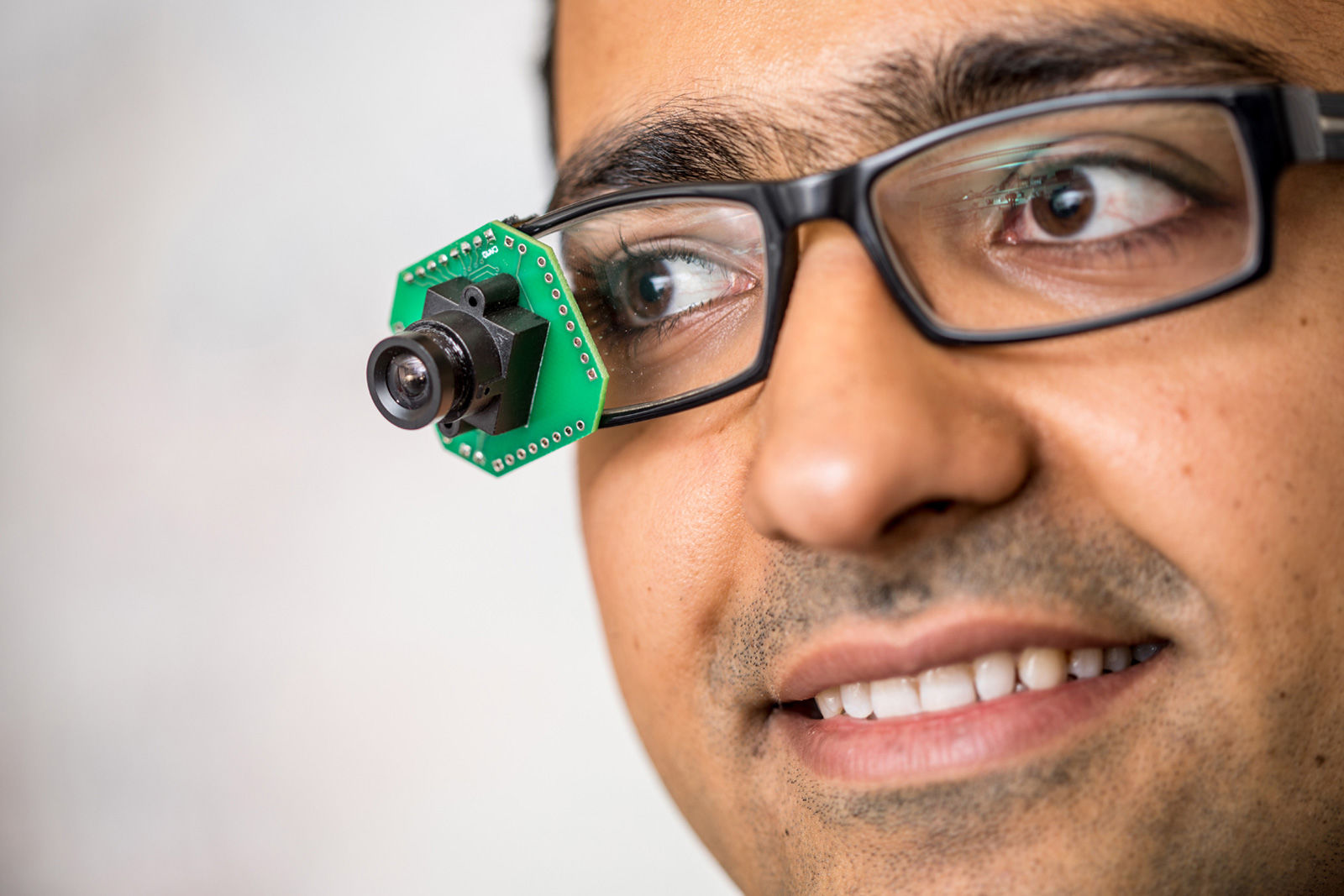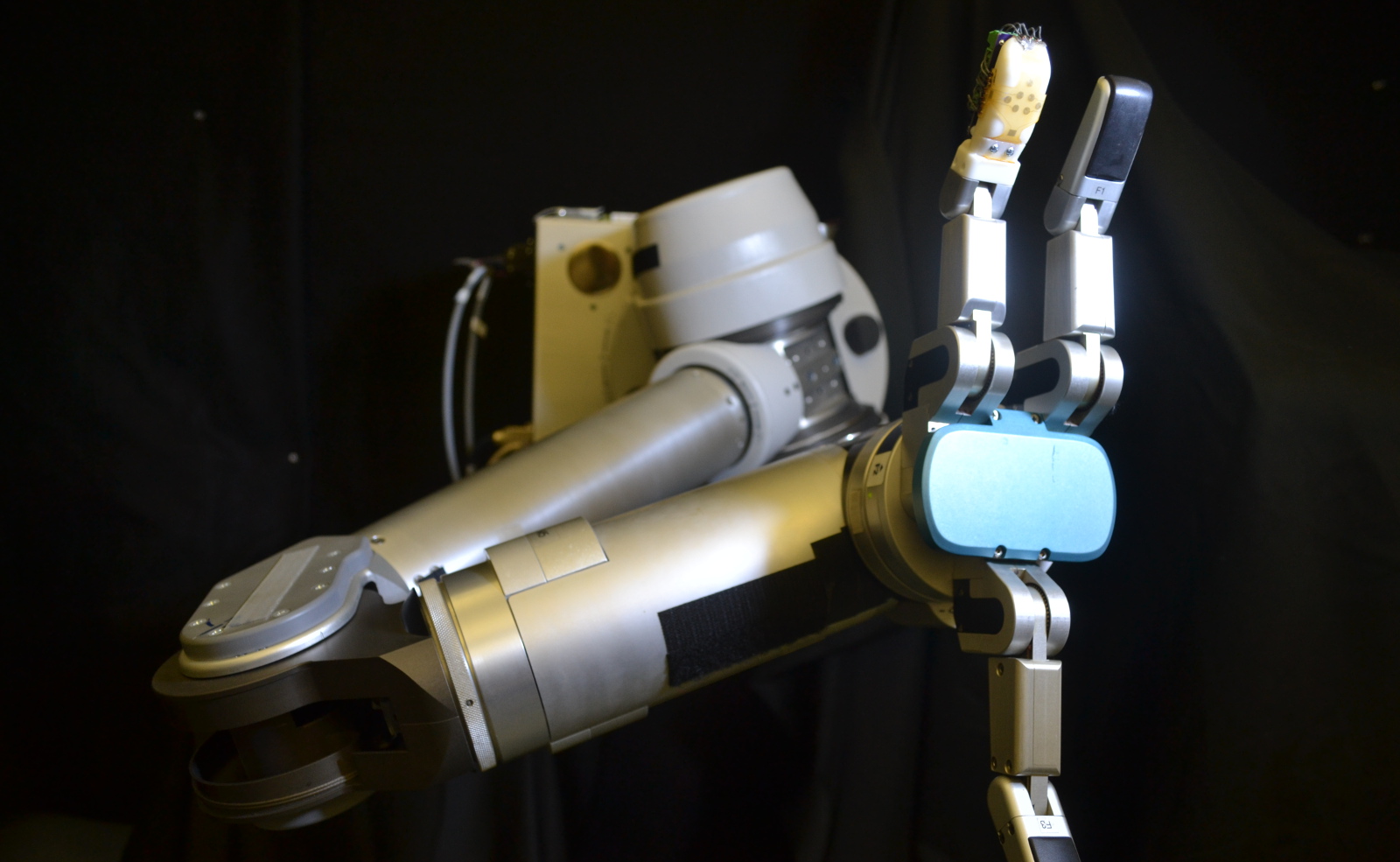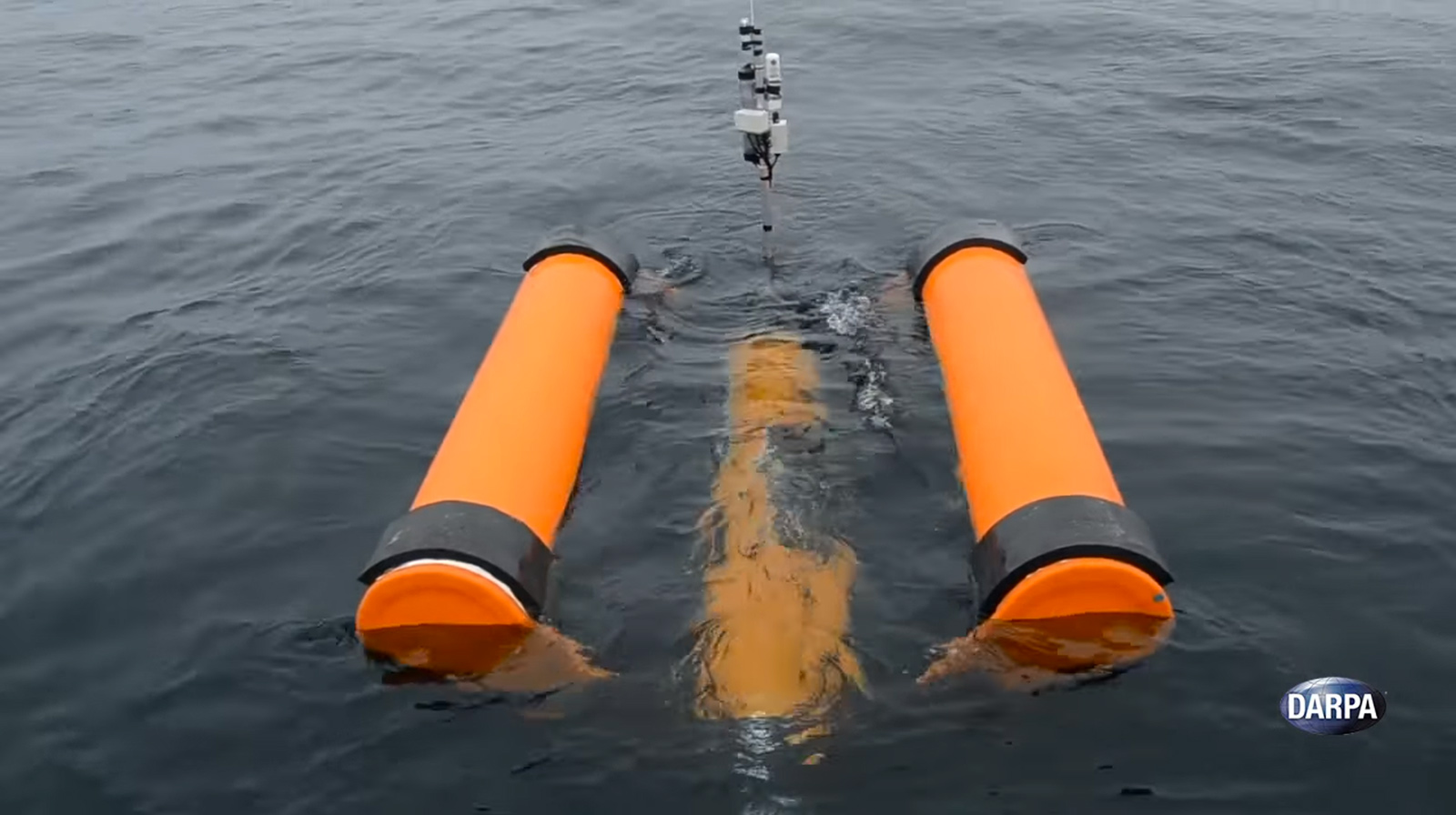 Farmers can use drones to monitor their fields, but they have their limits when they can rarely fly for more than 20 to 30 minutes at a time. University of Washington researchers might have a smarter way: recruit some insect friends. They've develope...
Farmers can use drones to monitor their fields, but they have their limits when they can rarely fly for more than 20 to 30 minutes at a time. University of Washington researchers might have a smarter way: recruit some insect friends. They've develope...
Bees with tiny sensor backpacks could help farmers track crops
 Farmers can use drones to monitor their fields, but they have their limits when they can rarely fly for more than 20 to 30 minutes at a time. University of Washington researchers might have a smarter way: recruit some insect friends. They've develope...
Farmers can use drones to monitor their fields, but they have their limits when they can rarely fly for more than 20 to 30 minutes at a time. University of Washington researchers might have a smarter way: recruit some insect friends. They've develope...
 There have been experiments in direct brain-to-brain communication before, but that's now extending to full-fledged networks. Researchers have developed a three-person brain network that lets participants send thoughts to each other -- in this case,...
There have been experiments in direct brain-to-brain communication before, but that's now extending to full-fledged networks. Researchers have developed a three-person brain network that lets participants send thoughts to each other -- in this case,...
 There a number of reasons why camera-equipped smart glasses haven't taken off, whether it's dorky designs, bans or just a lack of practical applications beyond niche audiences. However, there's a common theme for them all: they need big batteries to...
There a number of reasons why camera-equipped smart glasses haven't taken off, whether it's dorky designs, bans or just a lack of practical applications beyond niche audiences. However, there's a common theme for them all: they need big batteries to...
 New technology may soon enable you to get into your home or office with nothing more than your coat, wristband or tie. Scientists at the University of Washington have found a way to create smart fabric, using only conductive thread with no other adde...
New technology may soon enable you to get into your home or office with nothing more than your coat, wristband or tie. Scientists at the University of Washington have found a way to create smart fabric, using only conductive thread with no other adde...
 Robots show a lot of promise as first responders, but they can't effectively dismantle bombs or perform delicate first aid procedures if they can't feel what they're touching. To remedy that problem, a team of engineers from the University of Washing...
Robots show a lot of promise as first responders, but they can't effectively dismantle bombs or perform delicate first aid procedures if they can't feel what they're touching. To remedy that problem, a team of engineers from the University of Washing...
 While car makers and regulators are mostly worried about the possibility of self-driving car hacks, University of Washington researchers are concerned about a more practical threat: defacing street signs. They've learned that it's relatively easy to...
While car makers and regulators are mostly worried about the possibility of self-driving car hacks, University of Washington researchers are concerned about a more practical threat: defacing street signs. They've learned that it's relatively easy to...
 Translating audio into realistic looking video of a person speaking is quite a challenge. Often, the resulting video just looks off -- a problem called the uncanny valley, which states that human replicas appearing almost but not quite real come off...
Translating audio into realistic looking video of a person speaking is quite a challenge. Often, the resulting video just looks off -- a problem called the uncanny valley, which states that human replicas appearing almost but not quite real come off...
 Not only is fake news everywhere, but its purveyors call genuine news fake, making it doubly hard for the average person to know what's real and what's Inception. For example, President Donald Trump recently made up a terrorist attack in Sweden, and...
Not only is fake news everywhere, but its purveyors call genuine news fake, making it doubly hard for the average person to know what's real and what's Inception. For example, President Donald Trump recently made up a terrorist attack in Sweden, and...
 It doesn't matter how many war machines you have under your command if you can't relay orders to their operators. Maintaining communications is just as important as firepower, and DARPA wants the armed forces to have as many contingencies as possible...
It doesn't matter how many war machines you have under your command if you can't relay orders to their operators. Maintaining communications is just as important as firepower, and DARPA wants the armed forces to have as many contingencies as possible...